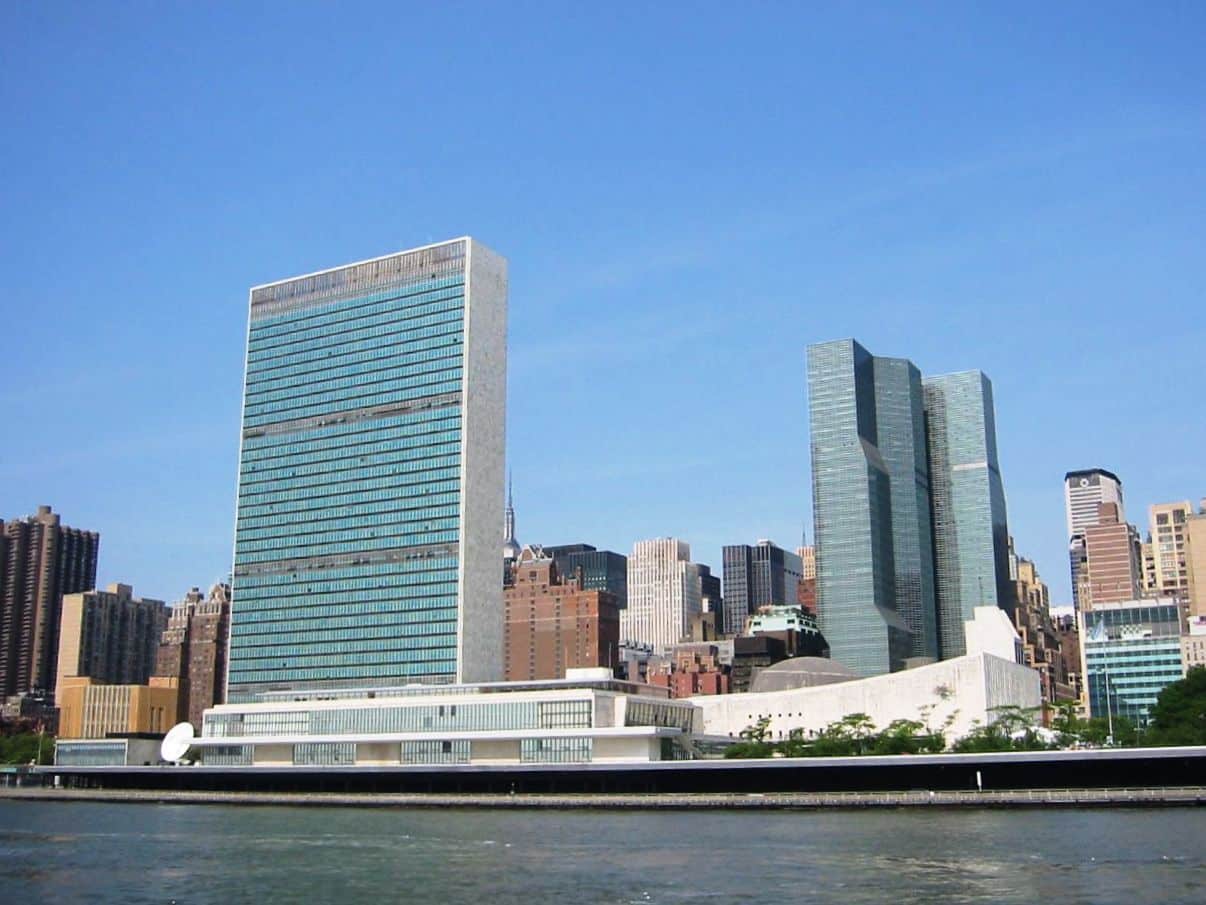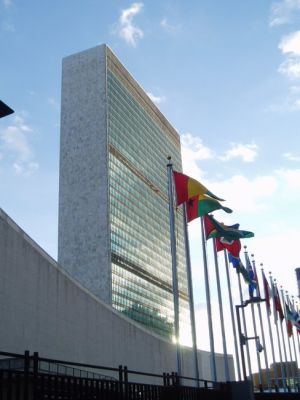Starting today in New York, the United Nations General Assembly on HIV/AIDS will be setting the course for the future. Everyone should get the HIV medication and prevention they need
The important United Nations General Assembly on HIV/AIDS begins today in New York. Board member Carsten Schatz and Managing Director Silke Klumb have travelled to New York with the German delegation on behalf of Deutsche AIDS-Hilfe. High-ranking representatives of the UN nations are meeting there until Friday under the title "UNite for Universal Access".
Carsten Schatz explains: "An important course must be set in New York. The global community must finally ensure that all people have access to prevention, treatment, care and counselling. After 30 years, we know exactly how we can effectively combat HIV. The world must no longer accept blockades."
According to UNAIDS, around 9 million people worldwide who urgently need HIV treatment do not have access to life-saving medication. In many countries on all continents, prevention still fails because governments refuse to address homosexuality and intravenous drug use. This is especially true in totalitarian countries and those where there is no clear separation between state and religion. Highly effective measures such as syringe distribution or drug consumption rooms are not even considered.
DAH Board Member Carsten Schatz: "The world must make it clear in New York: Taboos cost the lives and health of millions of people. The criminalisation of HIV transmission in many countries is also detrimental to prevention because it encourages people to conceal their infection and unilaterally assigns responsibility to HIV-positive people. The final declaration of the UN Assembly should include a clear commitment against stigmatisation and in favour of lifestyle-accepting education and the strategy of risk minimisation for drug users."
Ten years after the first meeting of this kind, a new declaration will be signed, which should be groundbreaking for the international approach to the HIV epidemic.
The association "Doctors Without Borders" is also calling on governments at the UN summit to increase the number of HIV patients receiving treatment by nine million within four years. So far, only 6.6 million are being treated with antiretroviral drugs. A new study shows that treatment could reduce the HIV transmission rate by 96 per cent and thus put a stop to the epidemic. Nevertheless, there is strong resistance from some key donors.
"After weeks of contentious negotiations, the question now is whether governments will agree on the proposed target of treating a total of 15 million HIV patients by 2015," said Sharonann Lynch, AIDS specialist for the MSF drug campaign, at a press conference held by the organisation at the United Nations in New York yesterday. "The world needs an ambitious treatment target and a concrete plan to achieve it."
"Over the past ten years, we have seen that treatment saves the lives of our patients. Now we know that whole communities can be protected, because treatment is also prevention," said Dr Tido von Schoen-Angerer, head of the drug campaign, who has already worked in MSF's first HIV/AIDS treatment project in Thailand. "We would be misjudging the reality if we were not to derive political measures from these findings and thus miss the opportunity to effectively curb new infections through treatment. The AIDS summit has the power to decisively change the course of the global AIDS epidemic."
According to UNAIDS, an additional six billion US dollars per year are needed by 2015 to prevent 12 million new infections and more than 7 million deaths by 2020. In 2009 and 2010, however, funding to combat HIV/AIDS decreased. Instruments such as the Global Fund to Fight AIDS, Tuberculosis and Malaria and other programmes have too few resources to take account of the "treatment as prevention" strategy and to carry out as much prevention as necessary.
Another obstacle in the fight against HIV could be the extension of patent protection to medicines. "Governments must ensure that medicines remain affordable. To ensure this, we are calling on Western industrialised countries to change their trade policies and stop hindering the production and distribution of affordable generic drugs," says Oliver Moldenhauer, coordinator of MSF's drug campaign in Germany.
The EU is currently negotiating a free trade agreement with India that could have devastating consequences for generics production in India.
Doctors Without Borders is currently treating 170,000 people with HIV/AIDS in 19 countries with antiretroviral drugs. More than 80 per cent of the antiretroviral drugs used in the projects come from generic manufacturers in India.
(pasch)











